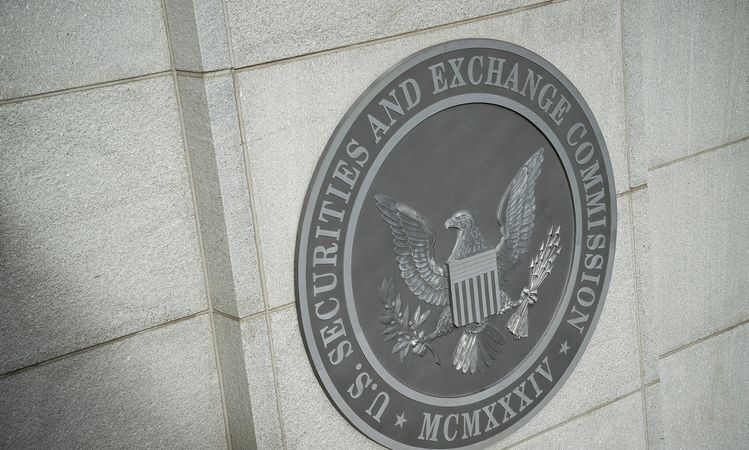
For a cohort of heavyweight US fund houses, the long wait is over. The Securities and Exchange Commission has approved ETFs that offer retail investors exposure to the world’s largest cryptocurrency.
On 10 January, the SEC gave the green light for 11 spot bitcoin ETFs to begin trading. Investment houses including BlackRock, Fidelity Investments, Ark Invest, Invesco and Franklin Templeton can now roll out regulated products that provide everyday investors direct exposure to the digital currency, rather than via funds investing in bitcoin futures.
The move by the US regulator has prompted excitement among some ETF professionals in Europe.
“The news itself is very positive for wider sentiment around crypto,” said Hector McNeil, co-founder of HANetf, a platform that helps asset managers launch ETFs. “The US ETFs will unlock more inflows into bitcoin, while the entrance of big names like BlackRock will add to the credibility of crypto as an asset class.”
READBitcoin bulls take $85m hit amid SEC’s ETF approval
But while products already exist in Europe offering investors exposure to bitcoin and other cryptocurrencies, they are not offered as regulated ETFs. Most do not directly hold bitcoin and are offered as exchange traded products that track underlying price movements.
A lonely road
Around $9bn is currently held by crypto ETPs listed in Europe, according to data platform ETFbook. However, some of these products are off-limits to retail investors and reserved for sophisticated clients.
Fidelity International is among those that have launched a bitcoin ETP, rolling out a product for professional and institutional European investors in 2021. Other bitcoin ETP providers include 21Shares and Coinshares.
The only provider that currently has a bitcoin product structured as an ETF in Europe is London-based asset manager Jacobi, which unveiled its offering in August.
However, the ETF falls outside the scope of the EU’s Ucits regime — the main framework that governs investment funds across the bloc — and it is regulated by the Guernsey financial regulator. The Jacobi product is also structured as an alternative investment fund, meaning only sophisticated investors who invest a minimum of $100,000 can access it.
Detlef Glow, head of Lipper research and analytics for Emea at the London Stock Exchange Group, said it was unlikely the SEC’s move would pile pressure on policymakers to review the list of eligible assets for EU funds to facilitate the launch spot bitcoin ETFs.
He said the SEC’s move could prove a “non-event” for European investors, who are used to investing in assets that are also not eligible under the Ucits framework, such as gold, via other fund structures.
READ SEC blames hack for incorrect post about bitcoin ETF approval
Meanwhile, Michael O’Riordan, founding partner of ETF consultancy Blackwater Search & Advisory, said most ETF providers in Europe have up to now been deterred from launching crypto-focused products as they have been perceived as risky.
“The SEC approval gives it more validation and acceptance, so they might be tempted to launch ETPs along the lines of what is already available in Europe,” he said.
No slam dunk
Laith Khalaf, head of investment analysis at investment platform AJ Bell, said while the SEC’s move is “a giant step for crypto into the mainstream”, it was unlikely similar developments would occur in Europe.
“Although even with the SEC approval, it isn’t a slam dunk that we will get one [in the UK] because the UK regulator may not approve their sale,” said Khalaf.
US-domiciled ETFs are not permitted to be sold to UK investors, so asset managers would have to launch products specifically tailored for the UK or European market.
A potential obstacle, Khalaf added, was the move by the Financial Conduct Authority in 2021 to ban the sale of exchange traded notes that contained unregulated transferable cryptoassets. The FCA claimed at the time crypto had no inherent value, was highly volatile, and associated with financial crime.
“It’s difficult to make a case that any of that has changed,” said Khalaf.
Want more on asset management? Click here for FN’s weekly newsletter
To contact the author of this story with feedback or news, email David Ricketts






